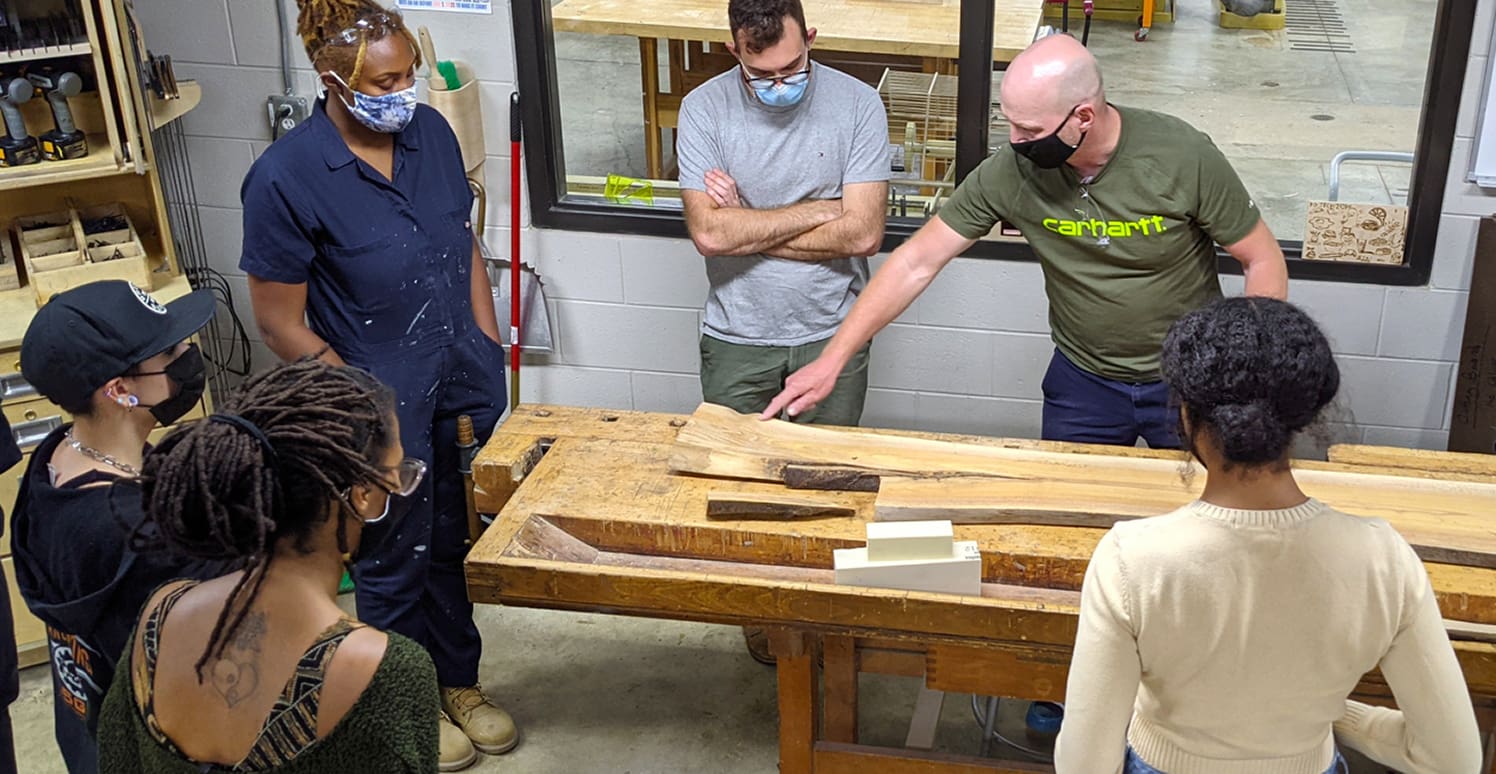President’s Blog: CCS’s Commitment to a More Sustainable Future
April 28, 2022
Last week’s Earth Day celebrations underscored the urgency for collective action to drive a more sustainable future. Concerns about our environment are more urgent than ever as we witness first-hand the changes and effects of global warming. A clean and thriving earth is essential for biodiversity, a healthy ecosystem and to ensure that our world is one of abundance, not scarcity. The impacts of climate change on our planet are real – flooding, heat-related death, insect borne illness, crop shortages, increased human migration, and more.
Colleges and universities have an accountability to the future. We play a special role in confronting the challenges of climate change to help ensure a healthy future for all that inhabit this earth and the future generations to come. Our responsibility lies both in how we reduce our institutional impact on the planet, and in the knowledge and innovation we cultivate and the education we provide to empower the next generation.
At CCS, we have been taking this seriously through a series of actions to lessen our carbon footprint and were recognized by Green Living Science for our efforts to date. You can find a recent list here, but those efforts include instituting recycling programs and new systems and processes that reduce paper and plastic usage. We also recently joined the call for national mobilization on climate action and clean recovery by signing the America is All In Climate Pledge.
There is so much more for CCS to do in order to reduce its institutional carbon footprint and increase its impact on mitigating climate change. I’m very excited to see the work of our newly re-established Sustainability Committee unfold. You can keep up with the progress CCS is achieving by visiting our Sustainability page.
Our accountability to the future also extends into our classrooms. Faculty across departments have not only incorporated content and projects into the curriculum to support our students’ learning and practical skills in how to advance action on climate change, but have also made changes in the classroom to remove harmful materials and practices.
Examples include banning the use of harmful solvents, environmentally friendly disposal of acrylic paint, learning about design for disassembly, LEED requirements, and other energy efficient technologies, exploring repair and reuse, and working with reclaimed materials.
In both 2020 and 2021, our MFA Color and Material Design students won the prestigious, international Biodesign Challenge for their sustainability-focused projects, Zebra Glass and Re-Form. Other graduate students are researching a vast array of topics and products that focus on sustainability and climate themes including the Blot Project: sustainable sanitary products, re-using car exhaust soot as ink, mass mobility systems, dystopian futures, and working with new materials like broken glass collected from the street. In 2023, we will be launching a new MA/MFA in Design for Climate Action to help both designers and non-designers develop the skills and leadership to design a better, cleaner future.
I’m especially excited that CCS is hosting the 2022 Cumulus Conference on the theme of Design for Adaption in Nov. 2022 to deepen our community’s understanding of the current design research into this topic. The Conference will explore the role designers play in fostering adaptation to climate change across three tracks: Climate Citizens, Climate Eco-systems, and Climate Apartheid.
While many people focus on the opportunity for technology and science to mitigate climate impacts, artists and designers have an important role to play. Artists help people connect and relate to these important issues through their works of art, increasing awareness and concern. They tell stories that help people understand the severity of the crisis. As an example, CCS’s recent d.Tree Studio with the Charles H. Wright Museum diverted dying trees from mulching to cultural artifacts advancing climate themes and social justice.
Designers translate new technologies and scientific discoveries into tools, products, services, and systems that people can use in their everyday lives to make a difference. At CCS, our students and faculty are exploring new materials, new ways of working, new communication methods and other innovations that can help reduce our carbon footprint.
While Earth Day may be an annual celebration, at CCS we are actively unlocking creative talents to make a lasting impact for our planet all year round. This is part of what we think it means to be a creative changemaker for the future.
NOTE: Among the initiatives being undertaken…
- Student sustainability group
- BFA Illustration and BFA Art Practice have banned the use of harmful solvents
- BFA Illustration exploring ways to deal with acrylic paint without pouring it down the drain
- BFA Transportation design students learning about design for disassembly
- BFA Fashion students working with reclaimed materials (see Margaret Henige exhibiting at Earth + Art at the Belle Isle aquarium)
- BFA Product Design students exploring repair and reuse; Daniel Heilbron looking into sustainable tourism
- BFA Interiors students learning about LEED requirements
- Graduate Color and Materials Design students entering the Bio-Design challenge for the third year running, having won twice in 2020 and 2021; designing sustainable sanitary products (The Blot Project), using climate themes in their thesis projects (re-using car exhaust soot as ink, Jasmine Brown); new materials using broken glass collected from the street (Joe Cardenas)
- Graduate Transportation Design students using climate themes in their thesis projects (mass mobility system; dystopian futures)
- d.Tree Studio (with the Wright Museum diverted dying trees from mulching to cultural artifacts advancing climate themes and social justice.
- Ian Lambert working with the Urban Wood Network and other partners on a new studio class.
